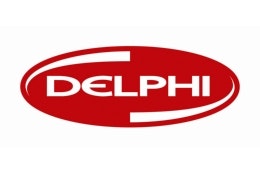A little over a month ago, Scotia Bank released a global auto report, predicting a modest-but-respectable 4.3% uptick in auto sales for 2013. As second quarter earnings reports roll in, it might be time to question whether that’s a bit low.
Auto manufacturers themselves calmed investors with strong second quarters, but the correspondingly robust quarter for their suppliers promises repetition of that success later this year. When suppliers post big numbers, it means that auto manufacturers are buying. That doesn’t guarantee that consumers will buy later down the road, but it does indicate that manufacturers expect them to.
Electric growth

Visteon Corp (NYSE:VC) has yet to report for Q2, but it certainly beat Delphi Automotive PLC (NYSE:DLPH) on first-quarter growth. A self-described innovator for auto-parts relating to climate, interior, and electronics, Visteon repurchased 4% of outstanding shares in Q1, saw cash flow explode almost 400%, and grew sales at a 7.5% clip. It seems likely that Delphi’s struggles more reflect market re-positioning than a lack of overall market vitality.
In fact, after a poor 2012, Visteon Corp (NYSE:VC) looks poised to lead a rebound. Very manageable debt levels, a fair P/E (and highly attractive forward P/E of 9.8), and aggressive growth plans all lie in Visteon’s favor. The company will need to prove it can hold steady with the impressive numbers, but all signs seem to indicate that they can.
Safety Strong
Meanwhile, Autoliv Inc. (NYSE:ALV) supplies seat belts, radar sensors, and other safety technology. In addition to announcing new buildings in China (to account for growth), the company exceeded second-quarter growth expectations, and now expects 6% growth in organic sales for the third quarter. Part of the sales increase simply arose from Autoliv gaining market share, as the company even grew 5% in Europe. But, with an additional 8% growth in North America, Autoliv’s spike also highlights a broader trend of production growth.
Fellow safety systems provider TRW Automotive Holdings Corp. (NYSE:TRW) also boasted a healthy second quarter, and the company explicitly cited higher vehicle production in North America and China as one of the main causes for its 6% sales growth. Because of the strong second quarter, TRW improved its 2013 halfway numbers 3% compared to the year-ago midpoint, and expressed renewed confidence in its ambitious full-year guidance, despite a huge exposure to European markets. CEO John Plant even expressed a cautious optimism that the European vehicle market might be stabilizing.
TRW Automotive Holdings Corp. (NYSE:TRW)’s earnings make auto makers a solid buy independently, but coupled with its debt reduction measures and strong presence in key growth markets, they could make the company itself a solid play.
Expectations surpassed
Even Tenneco Inc (NYSE:TEN), which offers clean air products and enhanced ride comfort, among other products, delivered its highest ever revenue performance during the second quarter, up 8% over the previous year. While earnings dropped, reportedly because of higher taxes, they still beat analyst estimates. Like TRW Automotive Holdings Corp. (NYSE:TRW), Tenneco attributed much of its growth to stronger vehicle production globally.
This trend, coupled with the company’s ability to exceed analyst expectations, provides renewed optimism for sustained global auto growth. Long-term debt (roughly 5x equity) could doom the company’s profitability, but its sales look primed to thrive.
Who are the winners?
It’s usually a good sign to see so many suppliers, reflecting so many different aspects of a car, expanding sales. Generally speaking, a healthy group of suppliers translates into stronger product sales, for two reasons.
First, the stronger vehicle production indicates a belief, among auto companies, that vehicle sales will expand. Often, these suppliers serve as a leading indicator for future trends. Second, suppliers can create a good effect on auto manufacturers as well.


